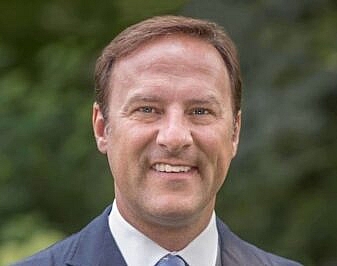Todd Ricketts is taking on Google, betting there’s still a niche in internet search for what the former Republican National Committee finance chairman calls “unbiased, uncensored” media.
Ricketts, part of the family that made its fortune in the online brokerage business and owns the Chicago Cubs, recently launched Freespoke, which is described as “a search
engine for the heart of America.”
Google dominates the market with about 56% of all searches, followed by Microsoft at 21% and Yahoo at 9%, according to Comscore. Launching a new search engine may seem
like a fool’s errand. But this is, after all, the family that bought the Cubs and managed to win a World Series after more than a century of futility.
“Multiple companies have tried to put a dent in Google’s dominance, including Microsoft, but no one’s been successful,” says Brian Uzzi, a professor at Northwestern’s Kellogg
School of Management and McCormick School of Engineering. “Other search engines have found niches. DuckDuckGo has been the most successful, even though it has tiny
market share compared to Google.”
Fourteen years after it was founded, DuckDuckGo has less than 1% market share, according to Comscore.
That doesn’t mean no one is trying. Search-engine startup You.com last week said it raised $25 million. “It tells me there’s room,” says Ricketts.
The 52-year-old from Wilmette says Freespoke and other startups are a better way to counter Google’s power than government regulation. “I feel like competition is the best way
to keep people honest. Competition is what Google needs. They don’t need to be regulated.”
Charges of bias against conservative political information news outlets by big tech companies have been growing for years. “We’ve seen this willingness of the media and the
tech industry to take a side,” he says.
Ricketts points to a federal investigation involving Hunter Biden and the Republican National Committee’s recent complaint with the Federal Election Commission related to
Google’s Gmail platform routing far more Republican emails to the spam folder than Democrat-generated communications during the 2020 presidential campaign.
Freespoke’s approach is to arrange its news-search results with labels left, middle and right, depending on the source. Among the site’s features is a digest titled “Censored
Stories,” which it describes as a “timeline of Cancel Culture attacks” and “the main stories the media doesn’t want you to see.” Among the stories featured is a discredited report
of race-based grading at Oak Park & River Forest High School.
“I think there may be an appetite among the public for blue and red search engines,” Uzzi says, though he notes the lack of success by Donald Trump’s social media platform,
Truth Social.
Ricketts has been working on the idea for a couple of years. “The idea to build a search engine is something I’ve wanted to do for a long time. My experience in the last few
years in politics made me believe there was a market out there,” he says.
He and co-founder Kristin Jackson met while working on Ending Spending, a political action committee founded by his father, Joe Ricketts. He downplays the role of politics in
Freespoke, however.
“It isn’t intended to be a Republican or Democrat idea,” he adds. “It’s more from my experience at Ameritrade and (Charles) Schwab, where it was about the democratization of
the stock market. What the discount brokerage did was give day-to-day investors the ability to take control of their own financial futures. Deregulation of stock commissions
opened up a whole new industry. We’re not trying to lead you in a particular direction or give any bias. We want to show you all the information and let you take charge of your
own news and information.”
Although Freespoke’s site still has a “beta” tag, Ricketts says it’s ready for prime time. It has about 150,000 regular users, compared to more than 250 million estimated for
Google.
Ricketts says Freespoke has fewer than 50 employees. He declines to say how the site will make money.
“We have this search engine. We have to show the demand, then you can come back around to think about revenue. We haven’t started generating any revenues. We’re still in
that phase of trying to show there’s demand out there,” he says. “If you have a critical mass of users, there are ways to generate revenue. We’re in the hundreds of thousands of
users. When I get to that million mark of consistent users, I’ll feel really good.”
Ricketts declines to say how much he’s raised for Freespoke. “We have raised some money—at some point we’ll probably reach out to the world to see if there’s any appetite to
invest,” he says. “We’re not quite there. At some point, if we’re successful, we’ll raise a round of financing.”
This article originally appeared in Crain’s Chicago Business 07/18/2022
© John Pletz, 2022






